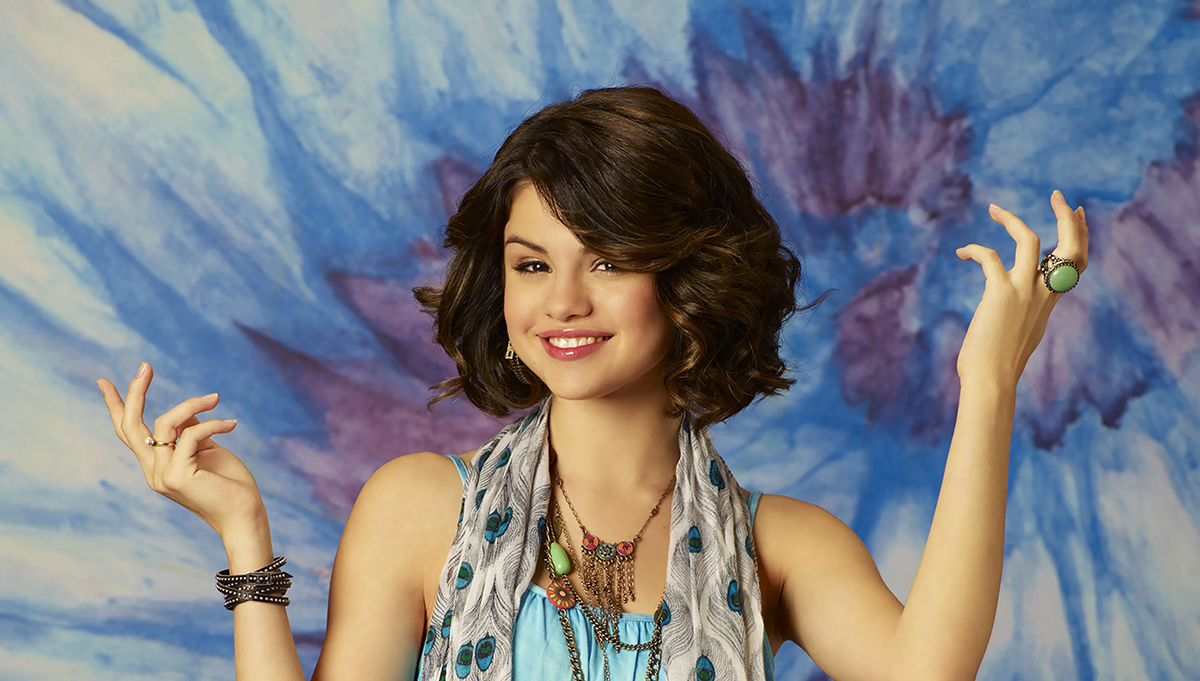I’m nostalgic for the Disney Channel period that revolved around Lizzie McGuire (2001), The Suite Life of Zack & Cody (2005), Hannah Montana (2006), and Wizards of Waverly Place (2007). After That’s So Raven ended in 2007, Selena Gomez took on the role of Alex Russo — the only ethnic heroine on a Disney sitcom for much of the decade. As someone who had grown up seeing primarily white, blonde protagonists, having a Latina lead (with a canonically Latina mom) was a big deal.
Alex Russo is an icon. She is confident in herself, vulnerable with her emotions, and embraces femininity in a way that is authentic to her. As much as she loves Converse and zombies, she also loves fashion. Compared to characters like Lizzie McGuire and Miley Stewart, Alex is unconventionally non-conforming for a Disney lead. For one, her self-assurance contrasts that of most heroines on the network at the time. Despite anti-heroine qualities like lying and scheming, at the end of the day, Alex doesn’t compromise her values. In the episode “Alex’s Choice,” she plots to save her best friend from bullying and embarrassment. In “Alex Does Good,” she calls out performative action. In “Justin’s Little Sister,” Alex may have fatally caused everyone around her to forget her brother, but she eventually swallows her pride and admits her faults.
Characters from the early 2000s were frequently divided into clear-cut tropes or shoved into ideals of normalcy. I had never been someone who was either overtly feminine or masculine. I always enjoyed straddling the line between both forms of personal expression, which is something I feel Alex executes well. She is unapologetically romantic in her countless crushes and secret love of fairytales — something girls are often shamed for. Society often writes off those of us who have affection for others as naïve and desperate, assuming girls will change their whole vibe for their crushes (I’m looking at you, Lilly Truscott). While tweens trying to find their identity shouldn’t be condemned too harshly, Alex’s confidence in herself is a rare and necessary part of her outstanding qualities. She knows when she isn’t getting what she deserves, and when to break things off — she isn’t willing to compromise who she is.
Alex’s confidence in herself is uniquely valuable as a main lead and was even more so at the time. I noticed outspoken girls were often slotted into the role of the best friend, like Miranda Sanchez or Sam Puckett. It seemed to send the message that girls who are not particularly girly or compromising are always doomed to be the second lead. Watching Wizards of Waverly Place, I don’t think there was a character I ever identified more with than Alex. She was everything I was and everything I wanted to be. The perfect mixture of sweet and sarcastic, resilient and raw. I was frequently outspoken as a child and teenager (something that likely aggravated those around me). Growing up with Alex Russo, however, I knew the importance of sticking with my values and ignoring those who felt I should look or act a certain way.
Looking back, I’m unsure which aspects of myself were influenced by her and which were already there. I still rewatch the quinceañera episode because it reminds me of my quinceañera. Unfortunately, though, I couldn’t magically transform my mother into me and had to go through the whole ordeal myself.
Alex’s physical traits are refreshing as well. Not to flatter myself too much since Selena is gorgeous, but to share facial features like round cheeks with a TV heroine gave me a brand new perspective of what I considered beautiful.
And it’s not just me. The confirmation of Alex being bisexual (despite the writers being unable to fully explore her sexuality at the time) is extremely significant. As many of us picked up that Alex was coded to have a relationship with Stevie, she provides a source of representation and comfort to women who watched her growing up and those who may watch her in the future.
It was hard to deeply relate to many protagonists, not only due to personality differences but also because of a cultural divide. TV continues to underrepresent racialized groups. Much of current Latin representation comes from pale-skinned actors, and there’s a lot of work to be done for brown, Black, and Indigenous Latinas. However, watching Theresa sprinkle in words like mija meant the world to me. It was the first time I watched a mom on TV and thought, “Hey, she looks like my mom.” As much as Jo McGuire, Carrey Martin, and Tanya Baxter are wonderful mother figures, I never felt someone had captured the essence of my mother as much as Theresa Russo.
No matter how many times I rewatch Wizards of Waverly Place, I am always left with a gushing feeling of nostalgia and gratitude. As happy as I am to experience the show at the time I did, we need so many more Latina leads to reach where we need to be. Alex Russo is one in a million, and it’s past time for more.

